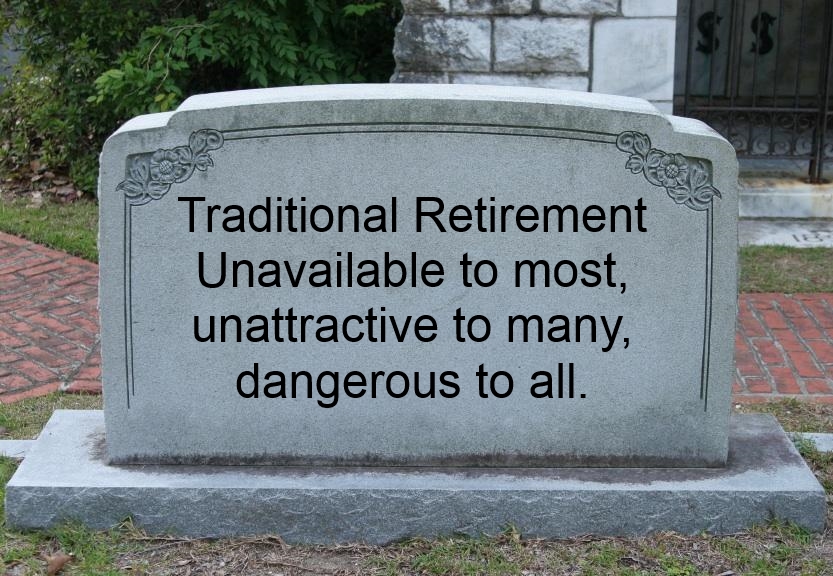What Do Retirement and the Internal Combustion Engine Have In Common? Read On!

I’ve read Fortune magazine cover-to-cover for over 30 years.
It’s bathroom reading and I usually get through each issue about the time the next one arrives.
Sorry – that’s more than you wanted to know. Here’s the point.
I appreciate the thoroughness of their reporting and the professional writing style. I need it to have at least a modicum of awareness of what is going on in the business world globally.
I was intrigued by a small article in this months’ issue which features “20 Ideas That Will Shape the 2020s.”
It’s an article by Christiana Figueres, former Executive Secretary of the United Nations Framework Convention on Climate Change. (Whew!)
Ms. Figueres headlines her article:
“We’ll witness the end of the internal combustion engine era.”
The cliff notes of the article are that we will see an explosion of electric and hydrogen-powered vehicles because of the drive for climate change and, more significantly, the tremendous amount of investment in this new industry. She claims that “the demand for low- or no-emission vehicles is increasing exponentially.”
As she predicts this demise, she says: “That is quite remarkable because the entirety of our economic growth over the last 150 years has come on the back of this technology and the fossil fuels that feed it.”
Perhaps a bit of climate-change-advocate hyperbole. But think about the significance, if true.
I suspect she doesn’t relate to geezers like me whose greatest automotive thrill was my new 1969 Olds 442 380 hp, 6-mile/gallon monster that won a few drag races at the impromptu Coors-fueled (us, not the cars) Midnight Winternationals on I-25 north of Cheyenne, WY.
Or for my brother-in-law, whose gem of a restored ‘67 Chevrolet muscle-car rattles neighbor’s windows at each startup.
Thing is – I believe Ms. Figueres is right.
Hard as it is to imagine, I believe the internal combustion engine is beginning to die a slow death.
Maybe it’s time. Hard to argue against an electric vehicle (EV) that performs as well with less maintenance while helping Denver’s air be less of the brown, stinky daily occurrence it has become.
 I know this is weird, but as I read the article, my one-track mind drew a parallel.
I know this is weird, but as I read the article, my one-track mind drew a parallel.
The internal combustion engine is about 150 years old and dying.
The concept of retirement is about 125 years old. (Otto Von Bismark kick-started it in Germany in the mid-1890s.)
Is it time for it to die also?
I’m no Christiana Figueres and advice is worth what you pay for it, but I’ll stick my neck out and suggest that traditional retirement is dying a slow – and timely – death.
By “traditional” I mean the off-the-cliff, labor-to-leisure, vocation-to-vacation, no-work, golden-years-into-the-sunset type of retirement that still dominates mid-life dreams.
Timely? Yeah.
Here in the U.S., we still hang on doggedly to an 85-year old relic that was established in 1935 to move older people out of the workforce to make room for the younger folks who were demonstrating in the streets. We hung an arbitrary, artificial finish line of 65 on it at a time when the average American didn’t make it to 62.
Irrelevant then. More irrelevant now with average life spans 18 years longer.
We’ve entrenched the number 65 in our minds like a road sign in concrete. We’re hailed if we retire before it and scorned as an “unfortunate” if we miss it, despite its irrelevance.
How many other 85-year old concepts do you still have operating in your life? (OK – maybe you still play Monopoly which was also introduced in 1935.)
Traditional retirement should die.
Here are a few things that predict it’s demise:
- A 2016 GAO report estimated that 48% of those over 55 had zero put away in a 401K. With the demise of corporate pension plans, well over half of the American population are financially unprepared to retire. Some form of post-career work for many is inevitable.
- We’re living longer – by a bunch. The prospect of Leisure World and thirty years of bingo, bridge and boche ball isn’t resonating.
- It’s an unnatural act that’s counter to our biology. We either grow or decay. Retire translates from a Middle French verb that means “retreat, go backward.” That sounds like decay.
- We’ve learned that work and continued learning are keys to longevity, that “winding down” comes with few rewards.
- We’ve seen enough of the extended morbidity and early frailty visited on generations before us.

- We want to finish out with more meaning having left a footprint that lives beyond us. We’re beginning to seek roadmaps to make that happen.
That’s what reality and research are telling us. Fewer can do it; fewer want to do it; we’re beginning to concede that it’s not the smartest thing to do if we want our biology to do its job for as long as it’s designed to do it.
The alternative to the internal combustion engine has been defined. The alternative to traditional retirement is evolving.
Encumbered by tradition, the pressure of cultural expectations, old “bad ideas, myths, messages, and models,” and biological naivete, the roadmap to the alternative to traditional retirement is still fuzzy.
But a roadmap is developing.
Personally, I’m encouraged to see the emergence of two terms in the dialog about this changing retirement scene: unretirement and semi-retirement.
For many, the first is leading to the second as the lights come on to the downsides of retirement. Some step straight into the second as they enter the third age of life with the realization that they don’t have a time-stamp on the back of their neck and that there is still much to do.
Either way, it’s a trend line with culture-changing, nation-saving power and implications.
The death of the internal combustion engine will help save the planet.
The death of traditional retirement can help save a deteriorating culture and a divided nation. In its place, we can resurrect what anthropologist, author, and activist Mary Catherine Bateson calls “active wisdom.” Wisdom “reaped from years of experience and living.” She calls it “the most acceptable and positive trait associated with longevity.”
What’s your plan for your 50s, 60s, 70s, 80s, 90s? It will likely involve an EV. But will it involve AW – active wisdom?
I’m a small voice in a vital revolution. Come add your voice – help needed and there’s lots of room!
We value your opinions and feedback. Leave a comment below or email me at gary@makeagingwork.com.
Also, if you haven’t, subscribe to this weekly newsletter at www.makeagingwork.com and receive a copy of my free ebook entitled “Achieve Your Full-Life Potential: Five Easy Steps to Living Longer, Healthier, and With More Purpose.”






I couldn’t agree more, Many of my clients are in their late eighties and early to mid-nineties and there are common traits that seem to separate them from the herd. First of all, they exercise daily. Not a hard workout in the gym like we did when we were younger, but a workout to help them stay fit and strong enough to do everything they enjoy. Second, they eat healthily. Many grow their own vegetables and a few grow their own meat. I am amazed at how many 80 and 90-year-old people are now learning about improving their diet. Thirdly, they are social. Both men and women are getting into social clubs and activities. Some have even started new businesses to keep them engaged in society. Finally, they love what they do and just being alive. I have a man in his early 70’s that rides his bike on 50-mile road trips weekly, plus 100-mile road trips monthly with men half his age. The funny part is, he is leading the pack and most of the younger men complain about how hard he pushes them.
None of these people believe in traditional retirement. They love seeing how long they can live healthily and are having fun doing. The beautiful part is, they love themselves. For me, I am with them forever baby!
Really wonderful information can be found on website.